By Jovan Figueroa
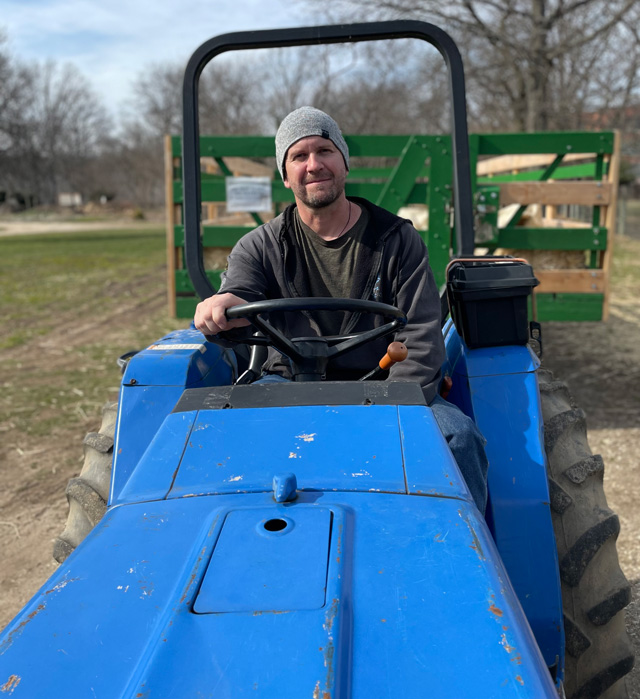
John aka Edgar the farmer
The Queens County Farm museum, established in 1697, is one of the longest continually farmed sites in New York State. It is located at 73-50 Little Neck Pkwy, Queens, in the Floral Parks and Glenn Oaks neighborhoods. The farm is comprised of a 47 acres and is a pleasant oasis away from the urban landscape of the city.
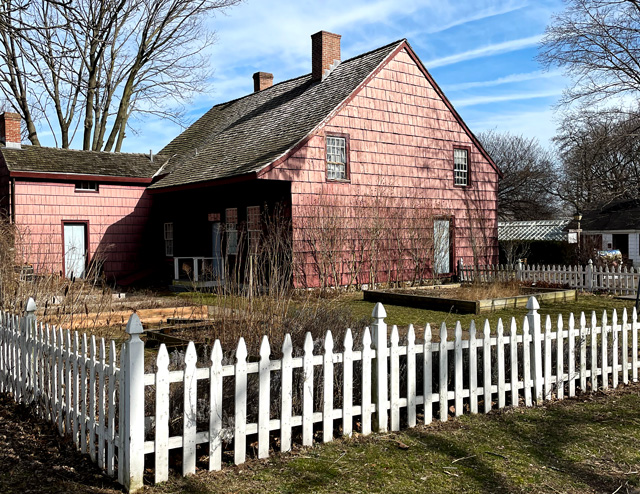
Adrian Farm House
The Adriance Farmhouse was built in 1772 by Catherine and Jacob Adriance and the Cox family expanded it to its current size in 1855. John Harrison was the original landowner of the farm and in 1697 he sold it to Elbert Adriance. The farm land that is now the Queens County Farm museum stayed in the family’s possession for five generations, more than 100 years. The Adriance family era ended in 1806 when an adopted member of the family sold the farmland to John Bennum. The farm land was then sold to and exchanged between several different New York State residents between the years of 1822-1926. In 1926 Pauline Reisman sold the farmland was sold to New York State.
The Queens County Farm museum is now a New York City landmark and is on the national register of historic places. At the turn of the century, both the museum founder and president James A Trent and New York State Senator Frank Padavan saved the farm from urban development. Padavan wrote the legislation that transferred ownership from the state to the New York City Department of Parks and Recreation.
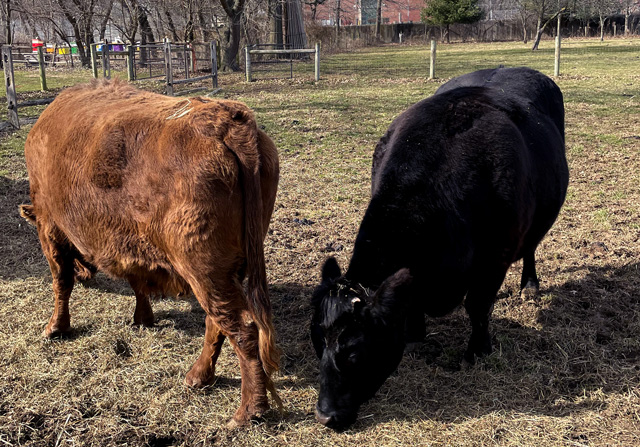
Fun facts: goats have four stomachs so that they can get the most nutrition from the plants they consume. Goats also consume poison ivy and help remove harmful plants from the ecosystem through rotational grazing in our woodland areas.
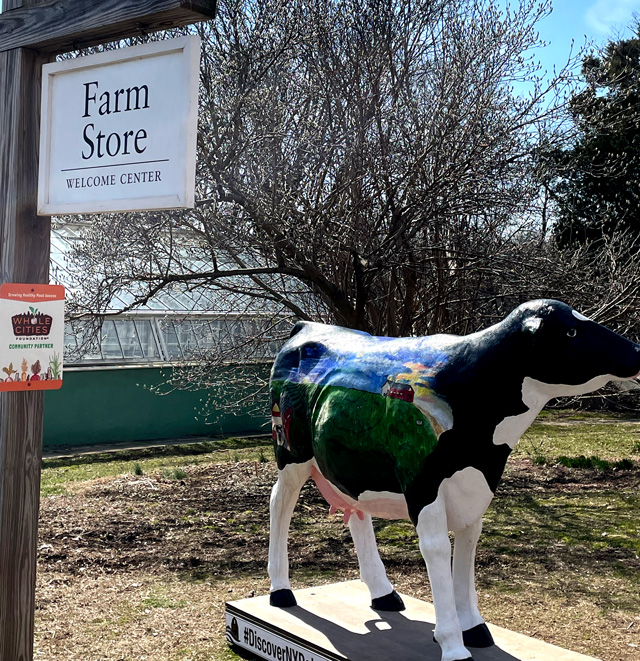
Welcome Center
Queens farm is home to two Dexter steers, which are among the smallest cattle breeds in the world. Their manure is an important ingredient for compost at Queens County Farm museum.
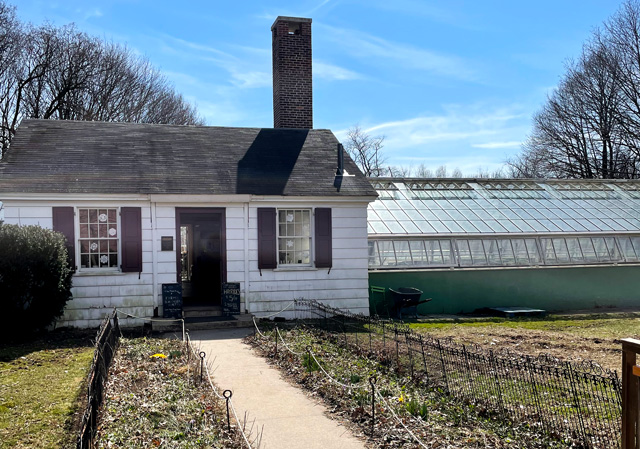
Queens County Farm Store
At Queens Farm, three acres of land is cultivated to grow vegetables, flowers and herbs. It also has a seasonal market five days a week during between May and early November.
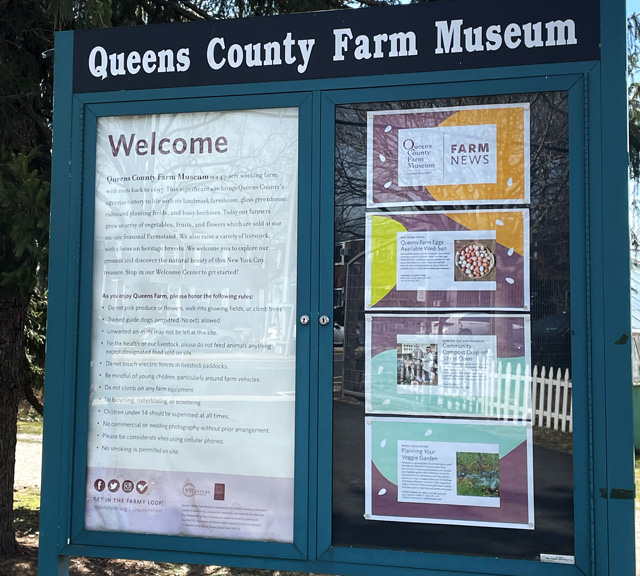
Welcome Center
The farm has around 18 beehives containing Italian honeybees, which produce wildflower honey that is harvested twice a year and sold on the farm.
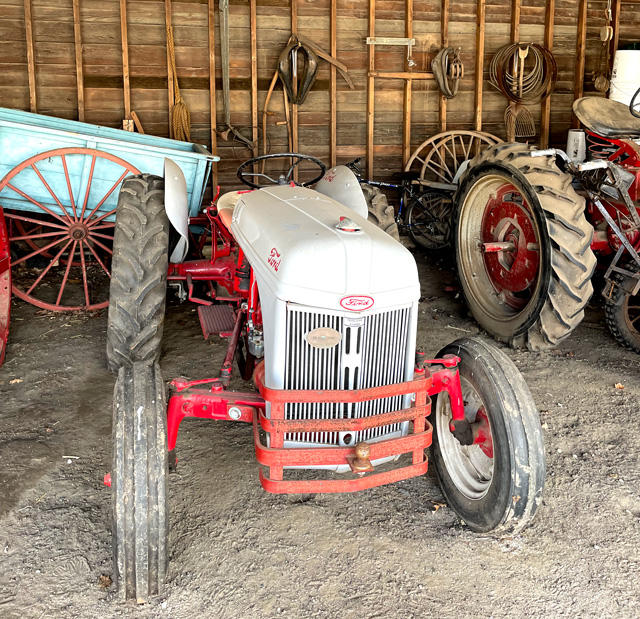
Vintage Ford Truck
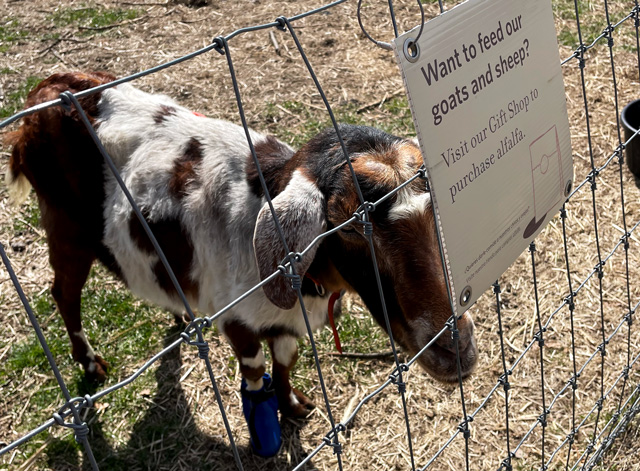
Sheep are the first domesticated farm animals. They do not naturally shed so farmers often cut their wool to help them stay healthy and active. Queens County Farm has a mix of Cormo, Cotswold and Romney sheep.
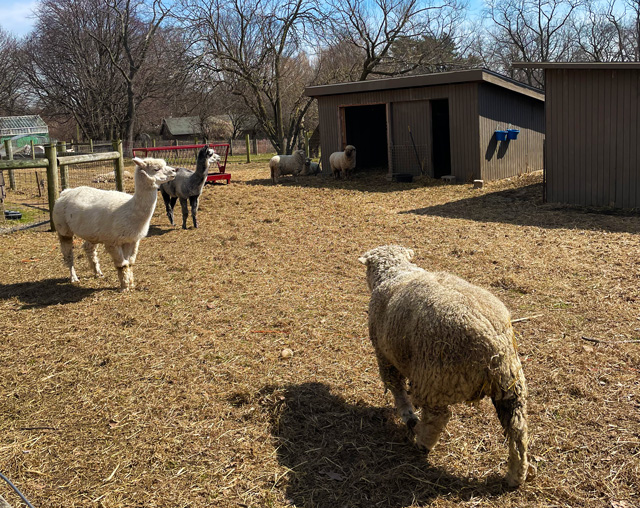
Alpacas are related to llamas and camels. They communicate by humming, clicking sounds and spitting.
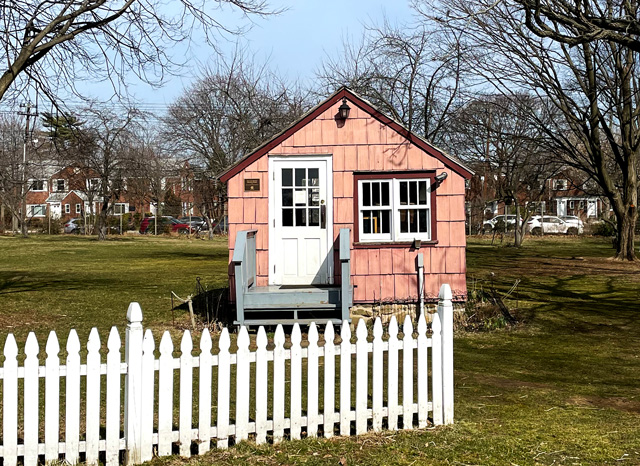
This is a picture of Queens County Farm’s Con Edison Reading Room which contains a library open to the public with books available for use while on camp grounds.
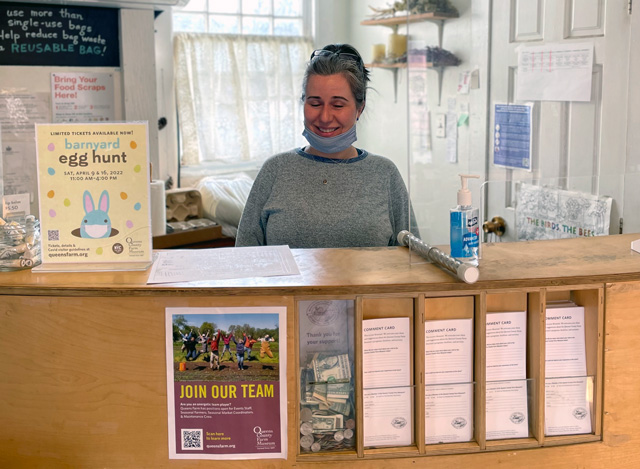
Queens Farm is currently hiring for several positions and is always open to interested volunteers. It also offers a school to farm education program, a farm camp, summer field trip, STEM matters NYC camp and an adult education program, all of which is listed on its website.
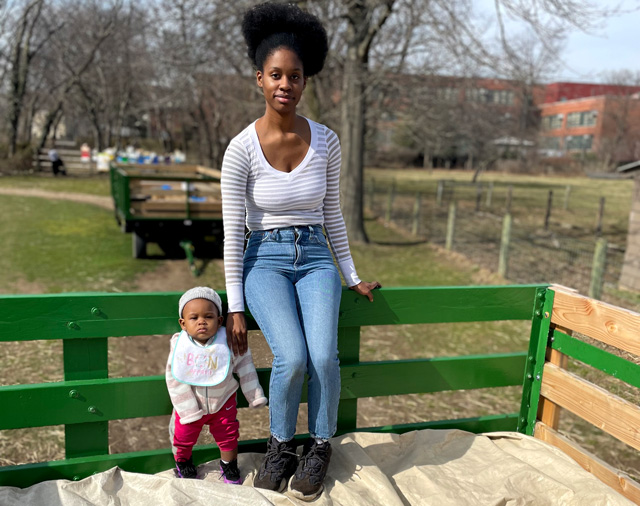
Hayrides for $5 a person, free for children 2 and under.
My daughter and I just finished riding the hayride and loved every minute of it! In addition to the education programs the farm has to offer, they also offer a wide variety of events and programs for kids, families and adults to attend, mostly in the summer and fall season including a Barnyard Egg Hunt, Bee-A-Pollinator Earth Day, Apple Blossom Festival, Sheep Shearing Festival, Thunderbird American Indian Powwow, Queens County Fair, The amazing Maize Maze, Maze by Moonlight, Halloween on the farm, Autumn Dance celebration, The Gift of the Magi and Hayrides! Tickets and event information is listed on the Queens County Museum website.


